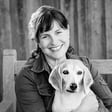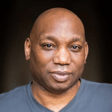
Episode 498: Sasha Bonét on Not Holding Back
"I have this desire to write as a novelist might write but write nonfiction," says Sasha Bonét, the author of The Waterbearers: A Memoir of Mothers and Daughters (Knopf).
Today we have the brilliant writer, the brilliant mind, Sasha Bonét, author of The Waterbearers: A Memoir of Mothers and Daughters. This book is a masterpiece that chronicles the matriarchal lineage of Sasha’s family, and the pain, and the struggle, and the triumph of will, of the slow, methodical, generational march forward and the residue of generational trauma, what we can outrun and we can never outrun. Damn, man, it’s something of a family epic that brought to mind A Hundred Years of Solitude to me in its scope, in its sweep. I don’t know. Maybe I have no clue what I’m talking about.
Sasha is a writer, critic, and editor living in the socialist hellscape of New York City, woot, woot!
Her essays have appeared in the Paris Review, Aperture, New York Magazine, Vogue, and BOMB, among others. She earned an MFA from Columbia University and teaches nonfiction writing at Columbia’s School of the Arts and Barnard College. You can learn more about Sasha at sashabonet.com and follow her on the gram @sasha.bonet.
This is a rich conversation about:
- Community
- The in-between place
- Not holding back
- Her influences
- Her writing practice
- And how jazz informs her writing
She’s also good friends with G’Ra Asim, who appeared on these podcast airwaves way back on Ep. 256.
Newsletter: Rage Against the Algorithm
Show notes: brendanomeara.com



















